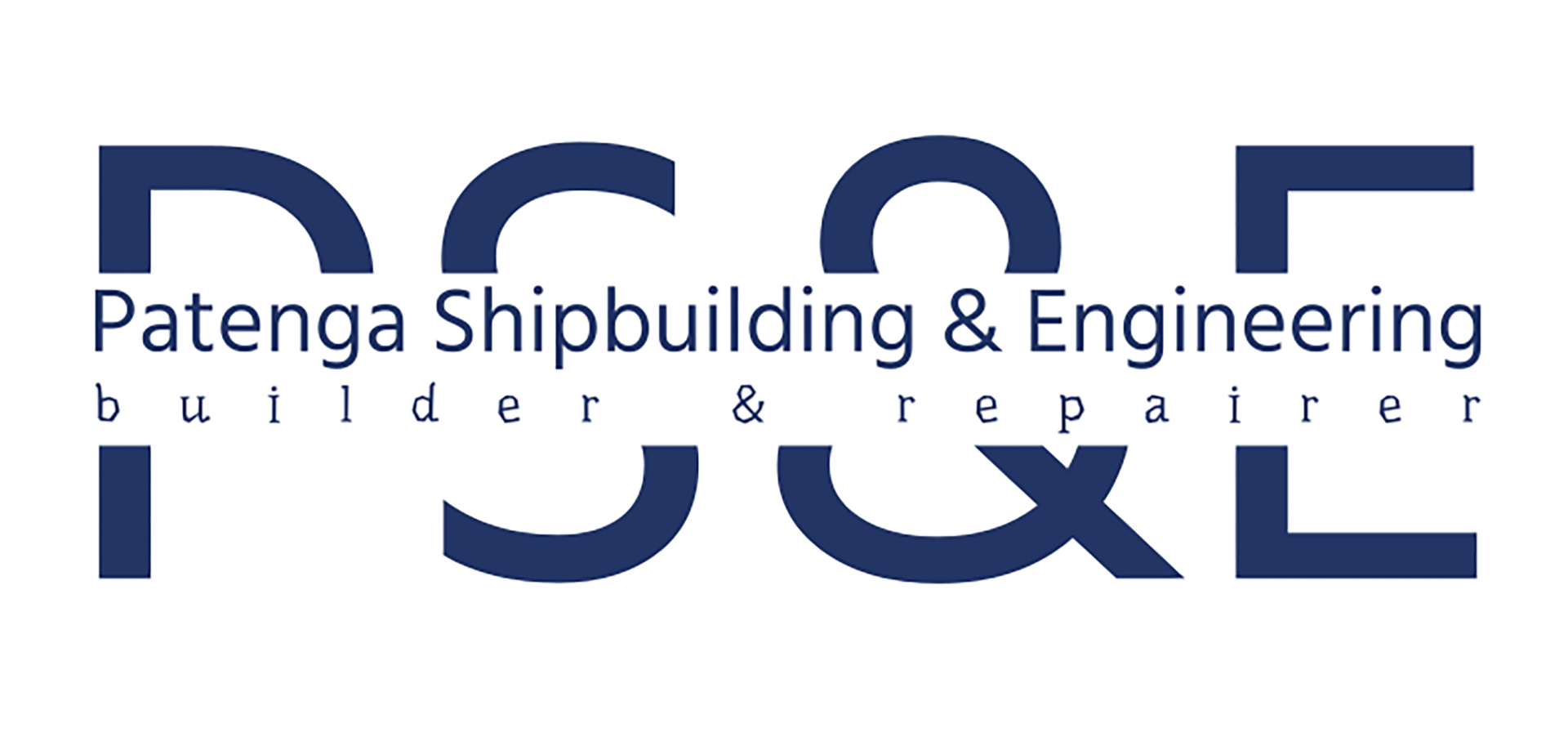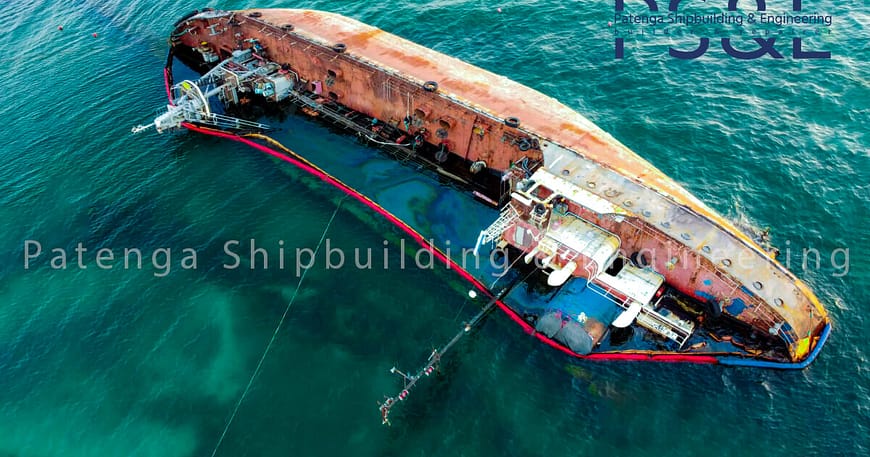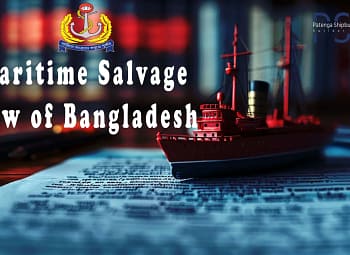Maritime Salvage is ship & submarine recovery procedure used for recovering a ship & its cargo which had sunk on the ocean by a maritime accident or catastrophe. The cause of the ship sinking in the ocean can be anything like a boat crash, a workplace incident, or some other issue to an event at work.
Marine salvage operation is vital to the maritime industry of Bangladesh because they ensure the safety of ships & the marine environment of Bay of Bengal. In an effort to mitigate the effects of the SDGs-2030 and Net-Zero-2050, Bangladesh has begun the process of becoming a smart maritime nation. For this, there are more and more opportunities for ship wreck disposal services every day.
Table of Contents
ToggleWhat is maritime salvage?
Recovering a ship and its cargo following a shipwreck or other nautical tragedy is known as maritime salvage. Ship repairs, vessel lifting, and towing are all examples of marine salvage. Given how quickly oil, cargo, and other pollutants may escape from an accident, protecting the coastal ecosystem from oil spills or other toxins from contemporary ships can also serve as an incentive.
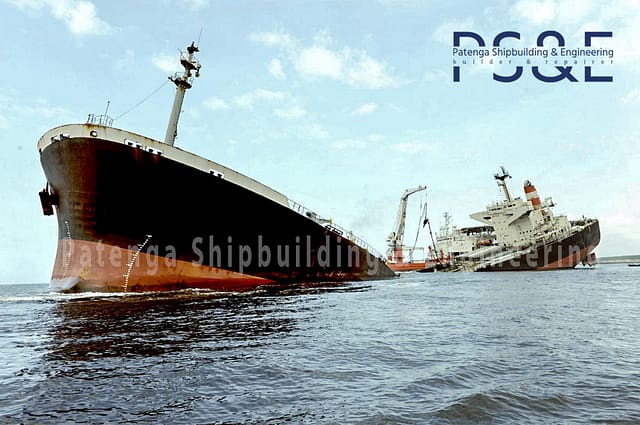
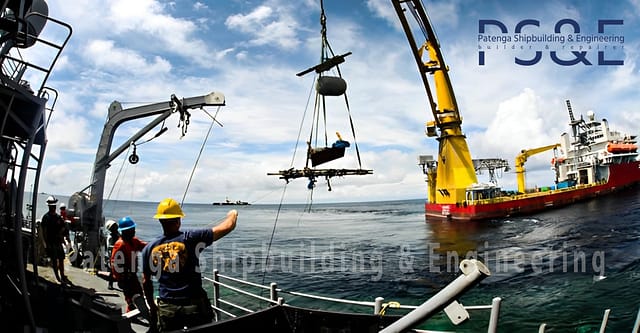
What are the needs of marine salvage operations?
To guarantee the safety of ships & marine environment, marine salvage operations play a critical role in the maritime sector. Ships, cargo, & other properties are recovered during these operations. From dangerous maritime incidents including shipwrecks, groundings, & accidents.
Importance of wreck removal operations for environmental protection
Importance of wreck removal operations for environmental protection The ecology may be seriously threatened by the wreck and debris left over from a naval catastrophe. Ship can spill dangerous cargo into the ocean which can be endangering for marine life by generating pollution. There are chances that the gasoline on board will leak & result in an oil spill, which might seriously harm the environment. To stop more harm to the environment, it is important to remove the wreck & debris as quickly as possible.
Microorganisms absorb toxic chemicals, including oil, heavy metals & polycyclic aromatic hydrocarbons (PAHs), which are then passed up the food chain to fish & crustaceans. Large amounts of oil are present in a number of shipwrecks, and if they spill, the harm might be widespread.
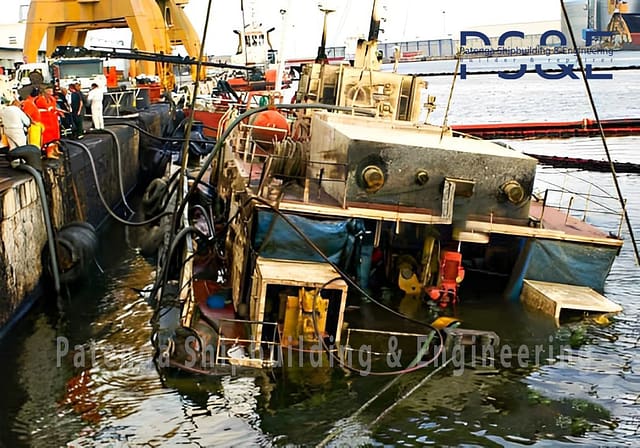
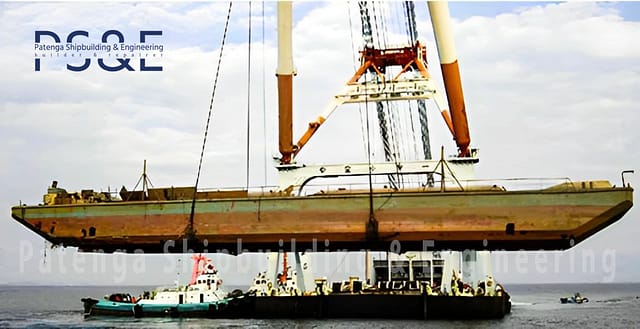
Who provide marine salvage services in Bangladesh?
Customers may obtain ship and marine salvage services from Patenga Shipbuilding & Engineering. Equipment for barges, tugs, cranes, lifting, towing, and layup is available from us. Our team, superintendent, engineer, supervisor, and salvage master are all seasoned professionals. Depending on the sort of salvage, we can also build equipment that is specifically tailored to meet your demands. Working with our idea, we installed a 33kva electric submarine cable in the Bay of Bengal to provide electricity to the isolated island of Kutubdia.
About our maritime salvage service
In the realm of shipyard, Patenga Shipbuilding & Engineering is a well-known brand for supplies of barges, tugs, cranes, lifting, towing, and lay-up equipment. plus a lot more.
We conduct business globally, encompassing all the things you need and want to purchase. All of the merchandise offered by PS&E is reasonably priced and is delivered quickly to your home.
We are pleased to provide premium ship products and antiques. Our company retrieves shipwreck, ship, or cargo property with extreme caution.
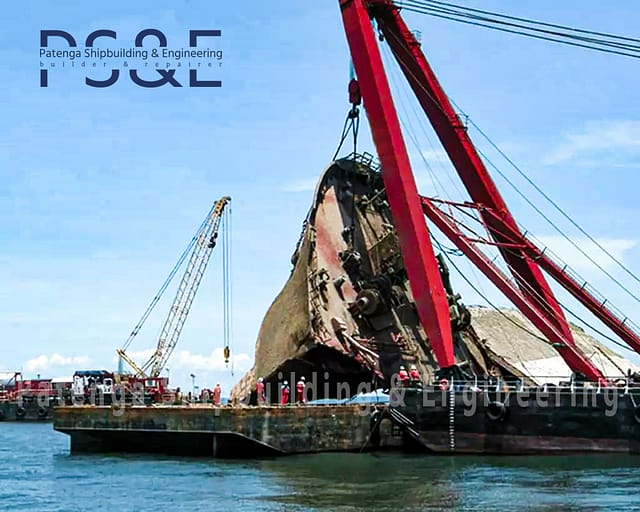
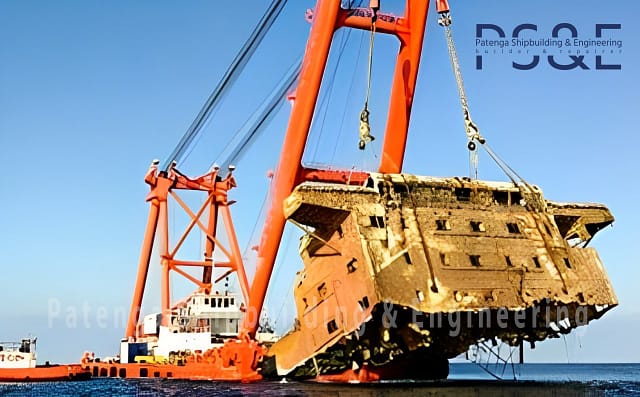
Why take wreck removal service from us not others?
Leading wreck removal service and equipment supplier in Bangladesh, Patenga Shipbuilding & Engineering is focused on offering complete solutions for the marine sector. Since the foundation from 2011, our dedication to quality has allowed us to establish a solid reputation as a dependable & trustworthy partner.
We really think that, when our clients succeed, so does ours! We work hard to establish enduring connections with our partners & clients while keeping this in mind.
Our clients may feel secure knowing that they are dealing with a business that is dedicated to ongoing improvement. Since we are constantly searching for fresh and creative methods to enhance our offerings.
How can I take maritime salvage service in Chattogram?
PS&E provides its clients with ship and marine salvage services. We are one of the leading maritime salvage companies in Bangladesh, situated in Chattogram. Equipment for barges, tugs, cranes, lifting, towing, and layup is available from us. If you want to take salvage service for your sunk ship, just contact us.
FAQ
Since maritime salvage rules differ from nation to nation, maritime law is by its very nature international. Generally speaking, certain requirements must be fulfilled in order for a claim of international maritime salvage law to be approved. The vessel must be in imminent or immediate danger; the "salvor" must be operating freely and without being bound by any prior agreements; and the salvor must succeed in their endeavors, but they may be compensated for a portion of their success if the environment is preserved.
There are several types of composite maritime salvage procedures -
Offshore salvage operations deal with sunken or stranded ships in open waters. As the ships would be exposed to weather & storms, these operations are sometimes too difficult. This process may take months to finish since unseasonal high tides & bad weather could make things difficult.
Harbor Salvage: This types of maritime salvage is less difficult than offshore salvage since sunken or stranded ships are submerged in protected waters & are not impeded by weather, waves, or currents.
Unless the route has to be cleared for navigation, there is no reason to rush in this procedure.
Salvage of Cargo: As the cargo can endanger the maritime environment, recovering the cargo on board is sometimes more crucial than salvaging the ship itself.
Before being discarded into the river, costly materials should be preserved and dangerous components should be eliminated as much as feasible.
Equipment Salvage: Large machinery components such as engines, turbines, and drive systems can be salvaged by dissecting, dismantling, or demolishing the hull if the equipment survives the incursion of seawater.



